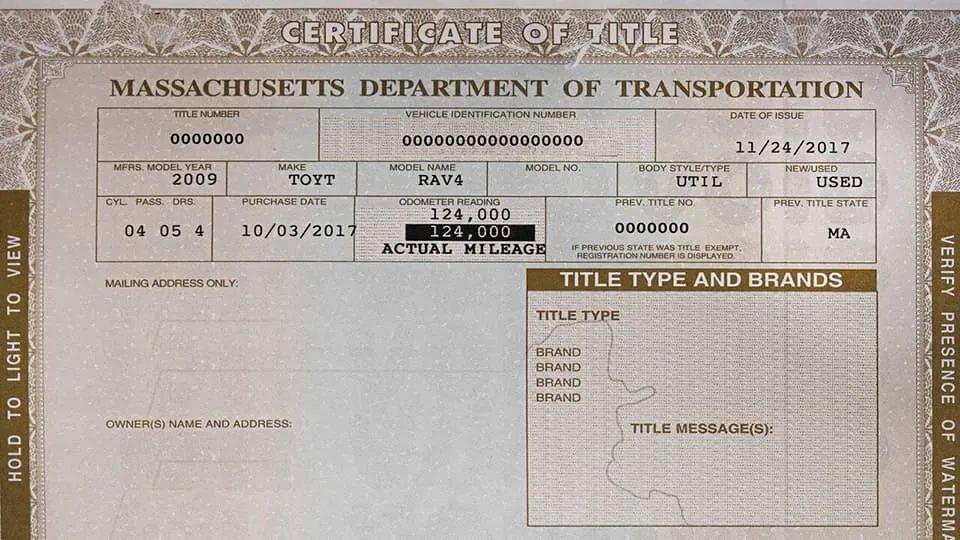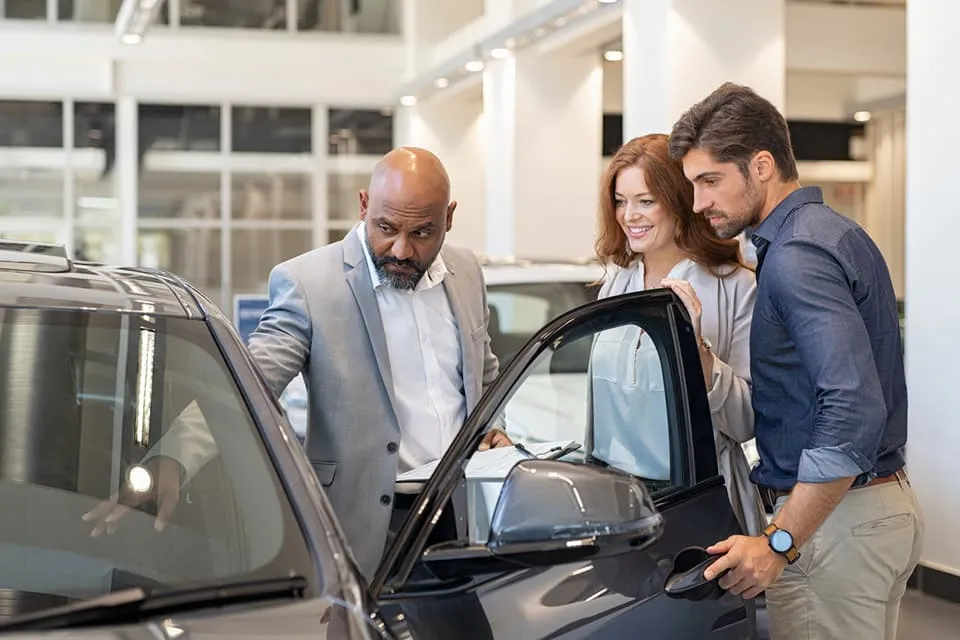What Is a Car Auction, and How Does It Work?

Car auctions are exciting public or private events that bring together a large number of people who are all looking for one thing: a great deal on an automobile! Top auction houses across the land hold fierce competitions for the perfect car, truck, RV, or boat.
For some, the idea of buying cars at auction to find that perfect vehicle at an unbelievably low price is too good to pass up. In the perfect scenario, a well-prepared buyer, whether buying online or in-person, can get an outstanding deal on their perfect car or truck. However, someone who rushes into an auction purchase without conducting their due diligence can set themselves up for losing a great deal of money.
Alexander Graham Bell said it best, “before anything else, preparation is the key to success.”
The first auction in 1938 contained a whopping 12 cars. Today, nearly 9 million vehicles are sold at car auctions each year in the United States alone. Every type of vehicle imaginable is sold, from small 2-door subcompacts to commercial vehicles and specialty cars. The 1955 Mercedes Benz 300 SLR Uhlenhaut Coupe sold for $143 million.
How to Go to Car Auctions
The used car market is hot these days due to stagnant wages and increased living expenses. Both individuals and dealerships are taking advantage of the oversupply of used cars by increasing their habits of buying a car at auctions.
The two 800-lb gorillas in auto auctions are Mannheim and Copart, but those dynamics have changed due to online selling. Due to online expansion, experts believe that in the next five years, the automotive auction market will fundamentally change more than in the last two decades.
A simple online search for car auctions will yield thousands of results, including the location, public or private, and online.
Mannheim has over 100 physical locations selling a variety of cars and trucks in several different formats, such as live sales, online, and mobile. The company offers an extensive line-up, from cars and trucks to boats, RVs, heavy equipment, and trailers.
Public Auctions
- Copart Auctions has developed one of the most strategically balanced platforms in the automotive industry. The company features over 250 physical locations coupled with its online bidding platform. Find the car you wish to purchase, visit the location for a hands-on inspection, and start bidding online, or shop online and have the vehicle shipped the same day.
Thousands of live public auto auctions are scattered around the country and owned by different groups. One such organization is the Stanley-Autenrieth Group, which owns the Carolina Auto Auction and the Indiana Auto Auction. The National Auto Auction Association ties together hundreds of these auction networks.
Top Online Auction Sites
- IAAI – used, repairable, salvageable
- ADESA – online and location auctions
- Salvage Bid – repairable and salvage only
Dealer and Industry Auctions
Dealer and industry groups are slowly but surely gaining confidence in digital buying and selling platforms. Condition reports, innovative imagery solutions, and consistent, reliable data are giving Mannheim and similar companies an edge. Producing an accurate visual representation of a specific vehicle is indispensable for hardened industry professionals to make buying and selling decisions.
Digital buying and selling has improved in all aspects of used car inventory control and floorplans. Companies such as Floorplan Express help single dealers precisely manage their used inventory by offering specific auction locations and online inventory control making buying a car at an auction more efficient and streamlined.
Digital Solutions transforming the automotive industry:
- ACV Auto – data outsourcing
- AXLE Funding – dealer floorplan auctions
- ALLY – dealer financing, smart auctions, shipping
- Auction Edge – software
How Do Car Auctions Work?
Car auctions are typically fast-paced affairs when the bidding starts, and any bidder hoping for success must be prepared. Reputable auction houses have dealer attendees with decades of car buying and selling experience. Industry veterans thrive on the fast-paced action of 10-, 15-, and 25-lane auctions.
Auction Day
Once you have found an auction house that has the types of cars you may be interested in, go to one of their auctions without the intention of buying. Walk around, talk to people, and see the flow of cars and how they are brought to the lanes. Absorb the atmosphere to see how things work. Familiarize yourself with the rules on how bidding starts, and pay close attention to the auctioneer’s pace.
Inspection Period
Inexperienced bidders should arrive as early as possible on auction day to register and review the Run List or block summary. Auction yards allow vehicle inspections at specific times before bidding begins. Have the GoodCar mobile app handy to check VINs and read over a vehicle's history and any abnormalities. Be thorough with any inspections. Auto auction houses do not allow test drives due to liability issues.
The Car Auction Begins
Always track the auction times and lane positions carefully, knowing precisely when the car you want to buy at auction is ready to bid and where to go ahead of time. Whether you are attending an online or live auction, always have a ceiling price. This magic number keeps you on track so you don't get swept up in the heat of the moment.
Once the bidding is ready to start, the auctioneer starts his chant or auction cry by announcing the starting initial bid and the vehicle’s lane position. Depending on the auction house, bids are placed by raising the hand or bidder number, a paddle, by phone, or through an online portal.
Winning The Bid
For the uninitiated, there is nothing more exciting than placing the winning bid at a car auction. Hours of research and planning finally pay off in a single raised hand, and the perfect car is yours. Hardened industry veterans see auctions as the first step in a profitable transaction.
Auctioneers provide the information for each vehicle as it comes down the lane. Along with their Ringmen and other personnel, auctioneers control the bidding process. They make sure interested buyers are recognized with their bids and call an end to each bidding lot or if any additional terms are needed. If the floor price is not met, the auctioneer moves on to the next vehicle. The entire process of buying a car at auction takes about 60 seconds.
Depending on the size of the auto auction, one or several block clerks monitor the entire process, recording bidding numbers, amounts, participating dealers, and other transaction details.
You’ve Won
Once the auctioneer throws the gavel, bidding is over. Block clerks record the price and the winning badge or paddle number. Buyers head to the clerk’s counter to receive an invoice for their purchase, and if this is the only vehicle, they are shown to the front office to pay.
Buyers take their invoices to the front office to handle the details of their purchase, such as paying the invoice, transferring title and keys, test drives, and making shipping arrangements. Most large car auction houses have several companies they use to ship vehicles directly to the buyer’s front door.
Once the details have been successfully handled at the office, the vehicle is yours. The gate pass allows the holder to take the vehicle from the auction premises. Buyers can either drive it home or have it shipped.
Do You Need A Dealer License to Buy Cars at Auction?
The answer to this question is a solid yes and no. If the auction is a dealer or industry marketplace, a dealer license and other documentation will be needed. Large auctions with several lanes of cars generally have different buying sections, including public and dealer-private affairs.
Anyone can attend and bid at a public auction. However, if you want to buy a car at auction, you’ll need to fill out a registration form, supplying a government-issued ID, and, in some cases, having a credit/debit card on file to bid and supplying a membership fee.
Online auto auctions require registration to bid. Documentation may include an ID, the last four digits of a social security number, and an email address.
Dealer-Only Auctions and Licensing Requirements
Dealer-only auctions are handled a bit differently. The money is always in the bank or the floorplan agreement, ready to be transferred. Shipping is usually handled by the dealership who bring their own flatbed trucks. Large dealerships often buy and sell dozens of cars and trucks at a single auction.
Dealer License
Anyone wanting to start selling cars should head to the Department of Motor Vehicles website in their state. Every state has specific requirements for obtaining a license to sell cars, trucks, SUVs, motorcycles, and so on. There must also be a permanent business location, either leased or owned.
Dealer auctions and dealer-licensing typically require the following:
- Business contact information, location, and dealership class
- Dealer license and registration documentation, Sales Tax number
- Payment method, ACH, debit card, or dealership floor plan
- Surety Bond: most dealerships use their in-house bond. This guarantees your business will operate ethically and legally.
Pros and Cons of Buying Cars at Auctions

Auctions are fast-moving car and truck markets that require mere seconds to make a purchase, as opposed to going into your local dealership and spending the day. The key to success is preparation and research.
The speed of auto auctions can be overwhelming for some, and the need to make big decisions under pressure should come naturally. Never ignore a vehicle's flaws, and always run a GoodCar Vin check during the inspection period.
Pros:
- Auctions offer deep discounts to those who know how to bid
- A wide variety of vehicles are available, from domestic cars, SUVs, Ferraris, trucks, and everything in between.
- Complete transparency of the available models, including condition reports, known issues, and VIN checks.
Cons:
- No test drives (this is a biggy)
- High-pressure environment is not suitable for some
- Salvage, rebuilt, and total loss titles are written off vehicles. Caution is the key!
- Money must be ready when the gavel falls
Tips for Success At Car Auctions
Experience is the true difference maker at any automotive auction. Neophytes must understand they are up against industry veterans with decades of experience. Industry bidders can look down the seam of the hood and know it has been in a front-end collision.
To counter the odds against you, scrutinize each vehicle of interest during the inspection period. Since there are no test drives, use this time to your advantage. Inspect thoroughly and have your money ready; otherwise, penalties will be imposed. Always have a ceiling price and never go over that number.
As stated earlier, it is vital to maintain composure while bidding, do not take anything personally, respond decisively, and always have a positive attitude. Attend one or two auctions without any intention of buying to soak up the atmosphere.
Car auctions are an excellent way to get a great deal on a car or truck, and they are also the best way to lose the shirt off your back if you are not careful.
In conclusion, make sure you are cut out for the fast-paced action of a live or online auction. When buying a car at auction, the entire bidding process takes less than a minute, and some people can get swept away by the excitement. Never let AI, automated car buying, or predictive analytic technologies get in the way of a good car deal.

Car Auction Frequently Asked Questions
What Is a Car Auction?
An auction is a type of sale in which the highest bidder wins. One common theme of auctions is that buyers must do their homework in researching the vehicles or items for sale as much as possible before bidding. Auctions are usually open to dealers only, but the general public may participate in some. Auctions set bidding rules and usually publish a book that describes the vehicles for sale before the start of the sale.
How Do Car Auctions Work in the US?
Car auctions in the US work by allowing participants to bid on vehicles in a competitive environment. There are different types of auctions, such as public, dealer-only, and government auctions. To participate, you'll need to register, inspect the vehicles beforehand, and then place bids during the auction. If you win, you'll need to pay immediately or within a specified time and handle the transfer of ownership.
Where Does Car Auction Money Go?
The money from car auctions typically goes to the seller of the vehicle, which could be an individual, a dealership, or an organization like a government agency. A portion of the money may also go to the auction house in the form of fees or commissions for facilitating the sale.
How To Sell a Car At Auction?
First choose an auction house that suits your needs, such as public, dealer-only, or online auctions. Next, register your vehicle with the auction, providing necessary details like make, model, and condition. The auction house may suggest a reserve price, which is the minimum amount you're willing to accept. On the day of the auction, your car will be presented to bidders, and if the highest bid meets or exceeds your reserve price, the sale is completed. Afterward, the auction house will handle the payment process, deduct their fees, and transfer the remaining amount to you.
What Does "No Reserve" Mean At a Car Auction?
"No reserve" at a car auction means that the vehicle will be sold to the highest bidder, regardless of the final bid amount. There is no minimum price that must be met, so even if the bids are lower than expected, the car will still be sold. This can attract more bidders, but it also means the seller takes on the risk of selling the car for less than its market value.
How Long After a Car Is Repossessed Does It Go To Auction?
After a car is repossessed, it typically goes to auction within 10 to 30 days. The exact timing can vary depending on the lender's policies and the local laws, but lenders usually act quickly to recover their losses by selling the vehicle at auction.
How to Register a Car Bought From Auction?
First, obtain the necessary paperwork, including the bill of sale and the vehicle's title. Then, visit your local DMV or vehicle registration office with these documents, along with proof of insurance and your ID. You may also need to pay registration fees and taxes. Once everything is submitted, the DMV will issue you a new title and registration for the car in your name.
What Is The Most Expensive Car Ever Sold At Auction?
The most expensive car ever sold at auction is a 1955 Mercedes-Benz 300 SLR Uhlenhaut Coupé, which sold for $143 million in May 2022. This sale set a new record, making it the highest price ever paid for a car at auction.
FREE Vehicle Search
- Accidents
- Problem Checks
- Title Records
- Recalls
- Values
- Specs
-
InfoPay, Inc. (dba GoodCar) is an Approved NMVTIS Data Provider
-
-






























